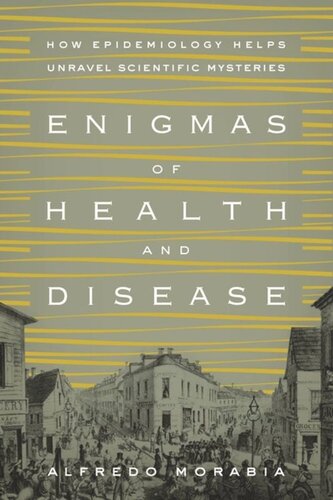

Most ebook files are in PDF format, so you can easily read them using various software such as Foxit Reader or directly on the Google Chrome browser.
Some ebook files are released by publishers in other formats such as .awz, .mobi, .epub, .fb2, etc. You may need to install specific software to read these formats on mobile/PC, such as Calibre.
Please read the tutorial at this link: https://ebookbell.com/faq
We offer FREE conversion to the popular formats you request; however, this may take some time. Therefore, right after payment, please email us, and we will try to provide the service as quickly as possible.
For some exceptional file formats or broken links (if any), please refrain from opening any disputes. Instead, email us first, and we will try to assist within a maximum of 6 hours.
EbookBell Team

5.0
70 reviewsAlfredo Morabia's account of epidemiology's role in the development of measures to identify, prevent, and treat disease sheds new light on the historical triumphs of epidemiological research. By drawing from both historical and contemporary sources, Morabia provides the tools to differentiate health beliefs from health knowledge, addressing topics as varied as the H1N1 swine flu epidemic, breast cancer, the effects of aspirin, and the link between cigarettes and lung cancer.
This book is the principal account of epidemiology's role in the development of effective measures to identify, prevent, and treat diseases. Throughout history, epidemiologists have challenged conventional knowledge, elucidating mysteries of causality and paving the way for remedies. From the outbreak of the bubonic plague, cholera, and cancer to the search for an effective treatment of AIDS and the origins of Alzheimer's disease, epidemiological thought has been crucial in shaping our understanding of population health issues.
Alfredo Morabia's lucid retelling sheds new light on the historical triumphs of epidemiological research and allows for contemporary readers, patients, and nontechnical audiences to make sense of the immense amount of health information disseminated by the media. By drawing from both historical and contemporary sources, Morabia provides the reader with the tools to differentiate health beliefs from health knowledge. The book covers important topics, including the H1N1 swine flu epidemic, breast cancer, the effects of aspirin, and the link between cigarettes and lung cancer.